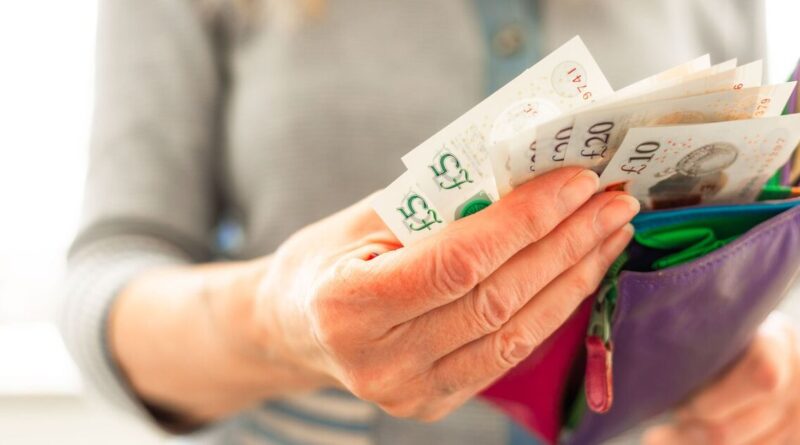State pensioners set for £240 weekly payment from DWP in 2026 | Personal Finance | Finance
State pensioners across the UK could be set to receive a £240 weekly payment from the Department for Work and Pensions (DWP) in 2026 thanks to the triple lock.
The Government increases State Pension rates at the start of every new tax year on April 6 and the amount it goes up is dependent on one of three factors – known as the ‘triple lock’. These factors include the consumer price index (CPI) measure of inflation (measured for September in the previous year), average wage growth between May and July of the previous year, or 2.5%. Whichever is the highest out of these three factors determines pension rates for the new tax year.
Pensioners are on course for a 4.8% State Pension boost next year under the triple lock guarantee, which would take the full new State Pension up to £241.30 per week – up from the current £230.25. But as the UK’s State Pension system is split into two schemes – basic and new – the amount pension payments will increase next April depends on when you retire.
Older pensioners receiving the basic State Pension are currently in line to get £184.90 per week in 2026, if they get the full rate – this is up from the current full weekly amount of £176.45.
The boost to both the basic and new State Pension is on course to be higher than previously thought after a key figure used in the triple lock calculation was revised upwards.
Office for National Statistics (ONS) data released on Tuesday (October 14) showed an upwards revision to total wage growth including bonuses for the quarter to July, up to 4.8%, from 4.7% in a previous estimate.
Inflation figures for September are due to be released next week, with the most recent figures showing that the rate of CPI inflation was 3.8% in August. This means the latest earnings figures are expected to be used to boost State Pension rates in 2026 as it is the highest figure.
But the increase could mean that more pensioners will soon start paying tax on their State Pension as the rates may take them over the personal allowance threshold.
Money Saving Expert founder Martin Lewis explained: “The State Pension is set to rise 4.7% [now 4.8%] next April. We know this as it is ‘triple locked’ – ie, it rises by the higher of 2.5% or inflation or the rise in average earnings. The key figure has just come in for earnings to July and it’s likely to be the highest of the three, at 4.7% [now 4.8%].
“So based on that, the FULL State Pension (for someone with all the qualifying National Insurance years) is set to rise from…
- NEW state pension: £230.25 to £241.05 a week [now £241.30].
- OLD state pension (retirees pre-April 2016): £176.45 to £184.75 a week [now £184.90].
“This will take someone on the full new State Pension to £12,535 a year [now £12,548], only £35 [now £22] below the frozen personal allowance (amount you can earn tax-free each year).
“So as State Pension income is taxable, that means without any question the following year (unless something changes), those on the full new State Pension with no other income will for the first time pay tax on it (as it will rise a minimum 2.5% and personal allowances are frozen).”
Commenting on the revised figures, Rachel Vahey, head of public policy at AJ Bell, said: “Provided inflation doesn’t spike above 4.8% when the September figures are released next week, all stars point to these latest earnings figures boosting the new state pension to about £241.30 a week, around £12,548 a year from April 2026 – putting it above £12,000 for the first time ever and perilously close to the frozen personal allowance. This poses a significant conundrum for Rachel Reeves and the Treasury.
“If, as is likely, the triple lock sees the state pension increase above the personal allowance of £12,570 in April 2027 for the first time, then the government will come under increasing pressure to make a decision regarding either the personal allowance or whether it can sustain the triple lock as it has promised at least to the end of this Parliament.”
She added: “Removing the freeze on the personal allowance would come at significant cost to the Treasury at a time when the Chancellor’s fiscal headroom is already strained at best, while an overhaul of the triple lock would come with huge political risk before the next general election.”





